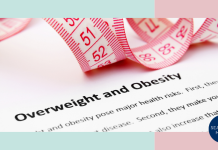Last week, Hilaria Baldwin announced on her Instagram page that she was suffering a miscarriage. During a previous visit to her doctor, the heartbeat wasn’t strong. The implication was the pregnancy wouldn’t be viable, and sadly she did lose the baby. She got a lot of support. She also got some negative feedback – that she was seeking attention, over-sharing, and too self-absorbed. But she was normalizing something that has somehow become a taboo subject.
taboo subject.
Yes, a miscarriage is very personal. Yet, it’s never made sense to me why women are expected to hide their fertility issues. I didn’t cause my difficulty conceiving. And I certainly didn’t ask to have seven surgeries, five failed tries, and a total of eight embryos transferred throughout my fertility struggles. We got lucky with one pregnancy that turned into my beautiful boy, but there’s been so much heartache along the way. So why, then, do I have to be quiet about it?
Granted, if someone prefers not to discuss it, that’s her right and I respect that. But what if I want to tell someone – or over 500,000 someones who follow a famous person’s Instagram account – what happened to me? Why isn’t that okay, too?
I’ve been following Hilaria for a while now, and I love the community of strong, passionate women she’s formed. Because of this, I didn’t hesitate to comment with my own story under her brave post.
I had a miscarriage when I was 44
This was my “last chance,” according to my doctor, since we only had two embryos left. He wouldn’t be taking any more of my eggs, he assured me. I was too old. And, as he looked me over, he noted that I “didn’t look strong enough” to carry a child at that point anyway. Yes, really.
I had no idea that my eggs would be considered “old.” I suppose that makes sense. But it never dawned on me that after the miscarriage we wouldn’t head back down the same path we’d been on so many times before in another attempt to give my son a sibling. My miscarriage devastated me. The first week I couldn’t get out of bed. I stopped eating. Within a few months I’d lost 15 pounds. So by the time I was able to pick myself up and head back to the doctor to discuss next steps, I was completely shocked to hear that our only option was to purchase a donor egg. Something we couldn’t afford.
An entirely new feeling of dread and devastation washed over me, and I spiraled further and further down in my despair. I continued to go days without eating. My already active pain disease amped up. Big time. I had test after test trying to find out what was wrong with me. Clearly there had to be something else at play here. No one just loses weight and is completely depleted of energy seemingly “out of nowhere” just because they had a miscarriage. But I did. I couldn’t stop mourning the babies I would never be able to have — and the siblings I would never be able to give my son.
The New-New Me
I cried on a very regular basis for two straight years. My depression was at times unreachable. And I scared the crap out of my poor husband. The experience forever changed who I am – as a friend, a daughter, a wife, and most certainly a mother. It permanently altered my outlook on life and the world around me. It made me realize that I was spending way too much time with and worrying about people who didn’t have my best interest at heart. People had to go. Business contracts with energy vampires had to be cut. Things I ate and drank had to be re-evaluated. Everything was subject to review in an effort to get my head, heart, and body working in sync again.
Throughout this process, I found comfort in people like Hilaria and writer and host of the podcast “Terrible, Thanks for Asking,” Nora McInerny – who at 31 lost her father, had a miscarriage, and became a widow. All in the same year. I embraced the joy that is Glennon Doyle and her “love warriors.” And it made me realize I was not alone. These women – and countless others – gave me the strength to speak up. It was life changing to talk about how I was feeling, what happened to me, and the impact it had on my life. When you do that, others start to speak up, too. As it turned out, I knew way more people than I thought who had had miscarriages and other equally devastating experiences.
If nothing else, going through this taught me the importance – the value – of using my voice in difficult situations. Of speaking my truth. And that it’s okay to say, “no, I’m not okay.”
Making Progress, But…
As more and more people turn to fertility treatments to start their families, the “mystique” behind infertility is getting better. But the stigma is still there. With any luck, my story, Hilaria’s, Nora’s, and so many other brave women will inspire others to share their truth. And with it, maybe the rest of the world will finally understand how truly important it is to give women the support and the open space we need to talk about such a personal topic.











I loved your post. It is very true that one can be going through such pain and those nearby never know. I’m sorry to hear all the heartache you and Ef have endured. ♥️
Thank you! 😉
Comments are closed.